Pecks Mill Felony Lawyer, West Virginia
Not enough matches for Pecks Mill Felony lawyer.
Below are all Pecks Mill Criminal lawyers.
Ronald N. Walters
✓ VERIFIEDRon has, over the last decade, assisted clients by planning and designing settlements to address future needs and ensure any government benefits are p... (more)
Claude S. Smith, III
✓ VERIFIEDWhether you have suffered an accident while on the job or suffered an injury during a car accident or semi truck accident, The Law Offices of Claude S... (more)
Jon D. Hoover
✓ VERIFIEDJon graduated from Widener University School of Law in 1999. Jon returned to West Virginia and worked briefly with the Kanawha County Prosecuting Atto... (more)
W. Michael Frazier
✓ VERIFIEDW. Michael Frazier is a graduate of Vanderbilt University, and the WVU College o f Law. His practice primarily involves litigation involving estates a... (more)





